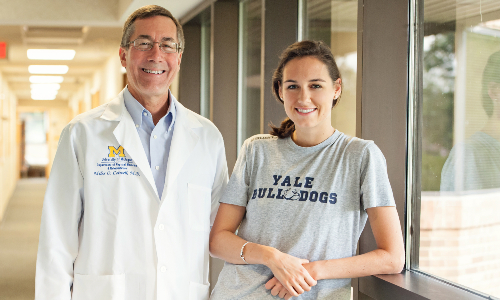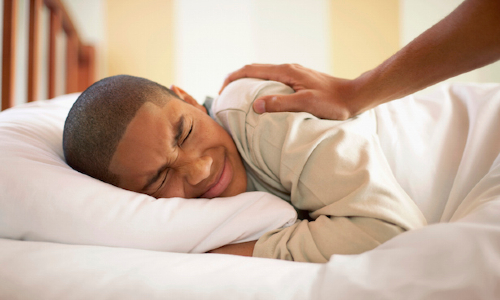RESOURCE CENTER
Concussion Response
What to do after a concussion
It can be hard to manage an injury you cannot see. With proper management, a concussion will cause temporary symptoms and you can expect a full recovery. However, when mismanaged, concussions can cause long-term symptoms and impact mental health.
Recent research suggests the majority of concussion symptoms will resolve within a month of injury. However, 10 to 30 percent of concussed individuals have symptoms lasting more than six weeks. (If you or your loved one falls into that category, make sure to review our Post Concussion Syndrome Resources.)
The immediate response to a possible concussion plays an important role in your recovery. To best manage concussions, the Concussion Legacy Foundation recommends the steps outlined in this easy-to-read guide and detailed below.
1. Remove yourself from activities that could cause head trauma, stress your heart or strain your brain.
Resting immediately after concussion gives you the best chance of making a speedy recovery. Resting means not exerting yourself physically or cognitively, and ensuring you are safe from subsequent head impacts that could cause a second injury or in extremely rare cases, even Second Impact Syndrome. Resting means taking a day or two off of work or school.
For athletes, if you feel concussion symptoms during a game or practice after an impact, immediately stop participating. In addition, if a parent, coach, teammate, referee, or medical professional observing the athlete recognizes concussion signs after an impact, immediate removal from play is critical. A 2018 University of Florida study found that college athletes who stopped activity once they were injured missed three fewer days of competition than those who delayed reporting. Additionally, immediate removal from activity reduced concussion symptoms by about two days and decreased the likelihood of missing more than two weeks of participation by 39 percent.
Learn more from CLF medical director Dr. Robert Cantu about why the brain needs rest immediately after it has been injured:
2. Get evaluated.
If you have any signs or symptoms of a concussion after a hit to the head or impact to the body, assume you have a concussion until you have a chance to be evaluated by an appropriate medical professional. Even if you passed a sideline evaluation, no test is perfect, and signs and symptoms can appear minutes, hours, or days after the impact. Use our Concussion Clinics Finder to schedule an appointment with a doctor. If your headache rapidly gets worse, your alertness gradually decreases, you vomit, or you have extreme changes in vision or balance you should go to the emergency department at your closest hospital as soon as possible to be evaluated for a life-threatening brain injury.
3. Take it easy.
The first step in every recovery plan is to rest your body and your brain. If it causes your symptoms to worsen, don’t do it. This means no strenuous exercise, limiting screens like television, computers, and your phone if they trigger symptoms, and getting enough sleep. It may also mean taking time off from school or work, or avoiding situations with loud noise, bright lights, or crowds. However, this doesn’t mean isolate yourself in a dark room for a week. Too much isolation and boredom can be harmful, contributing to feelings of anxiety, depression, and resulting in increased recovery time. Spend time with friends and family but monitor your symptoms and avoid situations that make you feel worse.
4. Monitor your symptoms carefully.
Take note of any symptoms you experience, when you experience them, and how severe they are. Are they consistent? Do they get worse in certain situations? All of this information will be helpful when you talk with your doctor.
5. Keep a positive attitude.
Most people recover from a concussion within a few weeks. This is almost always a temporary problem that will get better if you manage it correctly. If you’re struggling to maintain hope during your recovery, reach out to the CLF HelpLine for support. You can also check out our Concussion Hope page to watch video messages from those who have been through concussion recovery.
You May Also Like

Finding a doctor who understands concussion is key to managing your injury. Learn how to seek out the best care and when to try active treatments for concussion.
Concussion Treatments
If your concussion symptoms persist longer than six weeks you may have Post-Concussion Syndrome (PCS). Learn about PCS and what you should do if you are concerned you or a love one may have it.
What is PCS?